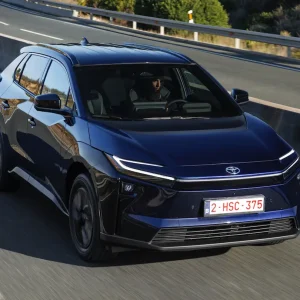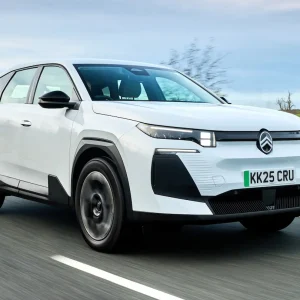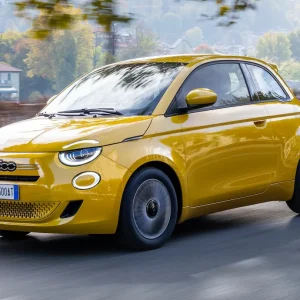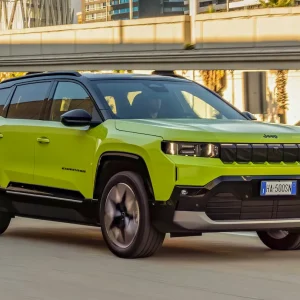It’s taken a few years, but Nissan has now added a second, larger diesel engine to the X-trail’s range, with a 177hp 2.0-litre joining the existing 130hp 1.6 diesel and the 1.6-litre petrol.
This update brings about more than just a new, more powerful engine, though, as Nissan has also rejigged the engine, gearbox and drive combinations on offer in the popular SUV.
The 2.0-litre diesel is available with the X-tronic automatic gearbox and with 4WD – a combination not previously offered on the X-trail.

This boost in power also brings an improvement in performance, with 0-62mph coming in 10.0 seconds – 1.4 seconds faster than the smaller diesel. It is still not a quick car, but the increase in low-down pulling power means it is more adept at overtaking manoeuvres. The CVT transmission, without any set ratios, does does struggle to sort itself out at times, though, especially uphill.
Although it settles down on the move, the engine is noticeable noisy while stationary.
Smooth ride
The car rides smoothly and comfortably thanks to its soft suspension and boasts commendable on-road manners, with light steering making town and low-speed turning easy.
The 4WD system is part-time, and comes with a selector that allows you to lock all four wheels, but can be happily left in auto mode the majority of the time. It copes admirably with steep hills and loose and uneven surfaces, but stops short of being a Land Rover-rivalling off-roader, lacking more serious options such as hill-descent control.

Inside, the interior is a practical and versatile space, with the choice of both five- and seven-seat versions. The boot offers 550 litres of space in the five-seater model, which is about par for the class, but the 1,982-litre capacity with all seats folded is notably better than almost all of its rivals.
Increase in towing weight
At 1,650kg, Nissan has boosted the towing weight of the automatic version by 150kg over the 1.6, which will be welcomed by those active customers that Nissan is aiming to appeal to with the new version of the X-trail. However, it still falls some way short of rivals like Mazda CX-5’s 2,000kg and the 2,200kg of the VW Tiguan.
CO2 emissions of 162g/km are better than the comparable Honda CR-V, but higher than several of its other key rivals, the Mazda CX-5 being notably better at 144g/km.
The X-trail is also more expensive to buy than its competitors, by more than £4,000 in some cases. This, and the expected higher running costs, means it is not the most affordable or efficient option in its class, despite its ability and appeal.
Nissan X-trail Tekna dCi 177 4WD X-tronic |
| P11D £35,270 |
| On sale January 2017 |
| Fuel consumption 46.3mpg |
| CO2 (BIK band) 162g/km (32%) |
| BIK 20/40% per month £188/£376 |
| Boot space 550 litres |
| Engine size/power 1995cc/177hp |





